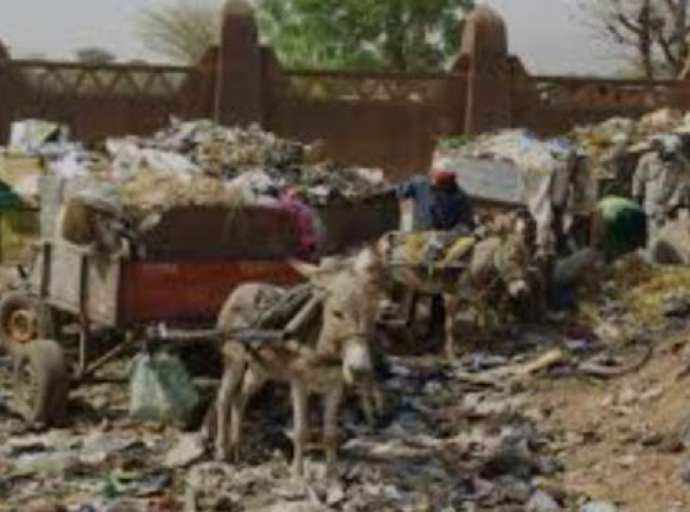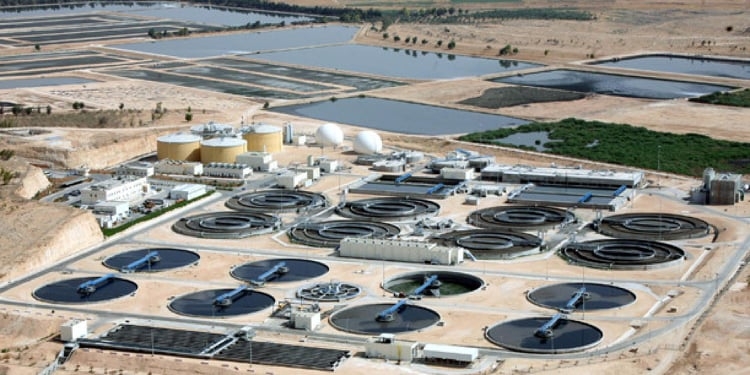All Stories
Sky World News/Donkeys in Kenya are dying with stomachs full of plastic and other animals are at risk
The smell of sea water and fresh dung fill the oceanfront air on the Kenyan island of Lamu, as donkeys plod along the town’s dock, ferrying residents and cargo. Lamu Old Town is a Unesco world heritage site, known for preserving its Swahili culture. With no cars but nearly 3,000 donkeys on the island, residents rely heavily on the animals for a living and as transport in the narrow, winding streets of the 700-year-old town, one of east Africa’s oldest.
Now, however, increasing numbers of donkeys are dying from eating plastic on the island, and scientists fear many other land animals are also being affected by human plastic pollution.
With little grass to graze on, donkeys browse for food through heaps of plastic bottles, nappies and scraps of cloth dumped by the road.
The owner of one weak and dehydrated baby donkey recently rushed the animal to the Donkey Sanctuary, an animal welfare charity. When vets gave the animal laxatives, they were troubled to find 30cm of knotted plastic wrapped up in its stool.
Sky World News/A life without poverty envisions a world where individuals have the means to meet their basic needs and live with dignity. It would lead to significant changes in consumption patterns, access to essential products like food, and the ability to afford goods previously out of reach due to financial constraints.
Additionally, the eradication of poverty would result in increased demand for various products, potentially leading to rising prices and impacting global resource distribution.
Moreover, individuals emerging from poverty would have the opportunity to start businesses, fostering innovation but also introducing new challenges such as increased competition and potential environmental consequences
While the idea of a world without poverty is noble, it poses complex economic and social implications that need to be carefully considered to ensure sustainable progress and equitable development.The desire for a world without poverty is a common aspiration. In 2024, there are several initiatives and events that aim to address these issues. The Shriver Center on Poverty Law is presenting the 2024 Poverty Summit, which includes a keynote speech from Matthew Desmond, author of "Poverty, Inc." The 2030 Agenda for Sustainable Development is a plan of action for people, planet, and prosperity that seeks to strengthen universal peace in larger freedom. The agenda recognizes that eradicating poverty in all its forms and dimensions, including extreme poverty, is the greatest global challenge and an indispensable requirement for sustainable development.
The 3rd world war will be around water: a major national security risk.
Sky world news/ environnement /ISRAEL / TOWARDS A CHANGE TOWARDS JORDAN Israel sells 50 million cubic meters of water to Jordan.
Sky world news/ The textile industry is said to be the second most polluting industry in the world, just after oil. Behind this widely held observation today, however, it is difficult to find a reliable and unique figure.
Sky world news /Tunisia /Bad news continues in Tunisia.
Sky world news/Tunisia/To preserve this potential, a project is underway, aiming to list the most exploited medicinal plants in Tunisia and to establish their monographs to set up quality control procedures, through a multidisciplinary approach including ethnobotany, pharmacology, toxicology and phytochemistry.
Tunisie/Skyworld news
La Poste Tunisienne announced on Thursday the signing of a new bilateral cooperation agreement with MoneyGram International specializing in the field of money transfer and financial payments on a global scale.
Sky world news/
Tunisia has just launched a 4th call for tenders for the construction of 16 solar power plants with a combined capacity of 70 MW. Interested companies have until February 9, 2021 to bid. According to the call for tenders from the Ministry of Energy, solar power plants should have capacities between 1 and 10 MW, the aim being to increase the national solar capacity by 70 MW by building 6 plants of 10 MW and 10 others of 1 MW.
Tunisia/sky world news
Tourism Minister stresses importance of preserving tourism institutions In the first months of the health crisis, the government had taken a number of measures to support this sector hit hard by the spread of the virus, such as the postponement of certain payments, he said.














